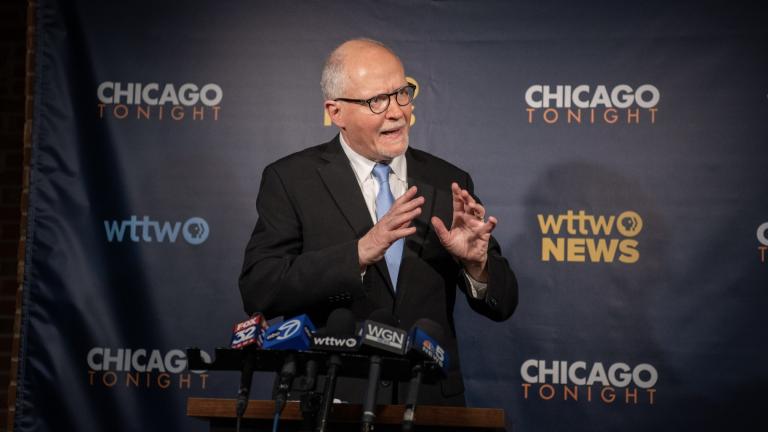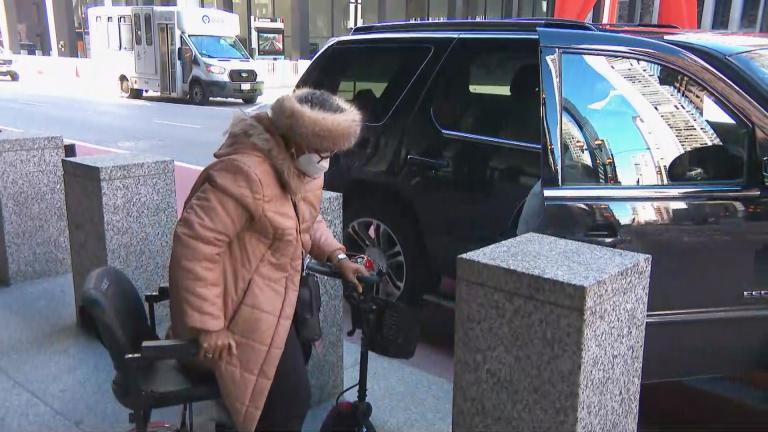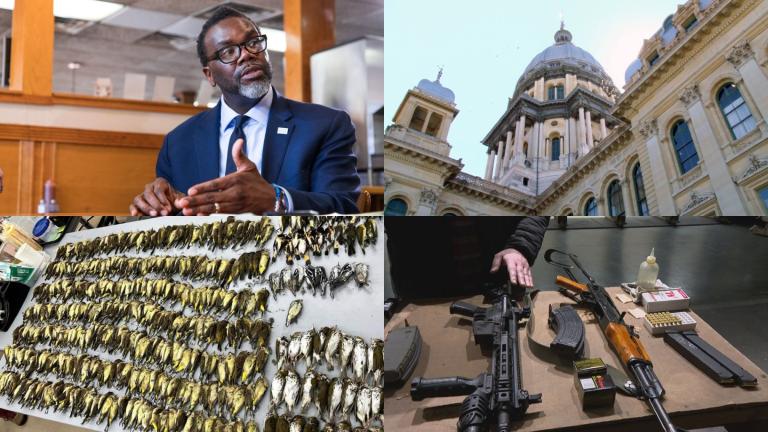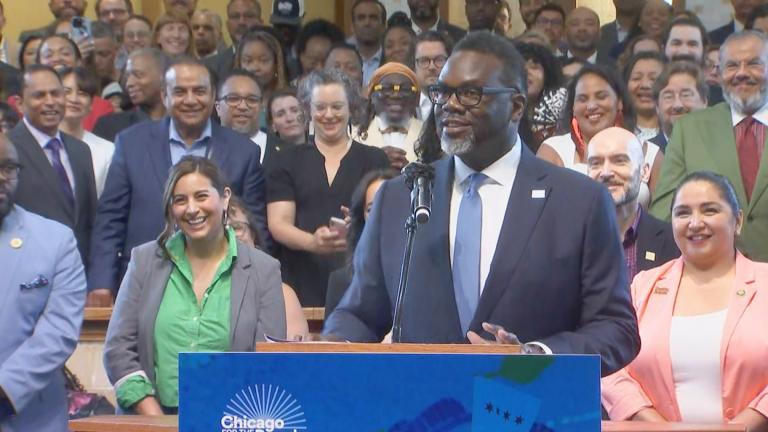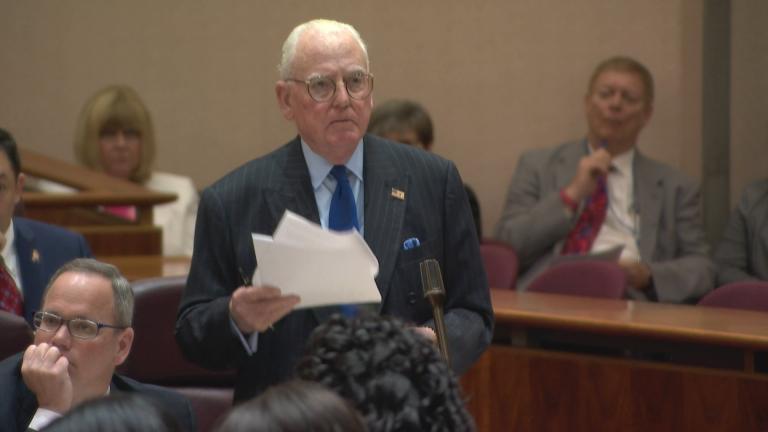The latest poll shows Brandon Johnson has closed to within two points of Paul Vallas in the Chicago mayoral runoff race.
As we approach the final days of the campaign, both candidates are making their final pitch to voters, but the result itself would appear too close to call.
Below is an interview with political speechwriter, debate strategist and senior lecturer at Northwestern University Jason DeSanto, who assesses the state of play as the April 4 election approaches.
(The interview has been edited for length.)
WTTW News: The latest poll seems to be showing the race almost neck-and-neck. Who do you feel will be feeling more comfortable at this point?
Jason DeSanto: Well, I think they both have reasons to be feeling good about things. I think Vallas has reason to feel good about things. Let’s assume that at least maybe directionally that latest public polling is in the neighborhood without committing to whether it’s 100% accurate. Directionally, Vallas post-runoff has managed not to get wiped out with Black and Latino voters. And I think there was some question about that. I don’t think anybody thought that he was going to get totally wiped out, but he’s managed to build on his victory. He’s done fairly well across groups. He’s still pulling about 20% of progressive voters. I think he’d probably like that share to be a little bit larger, but that’s pretty good. And he is leading on the Latino vote, which is a positive for him and it looks like he’s picking up some of Willie Wilson’s support. So I think all those things are positives for him.
I think Johnson should feel good because he’s virtually doubled his vote share, if we’re to trust these numbers. He was coming in at about 20% after the initial voting and now he’s about double that. And he’s doing that across demographics and personally, I think every time that they get together and debate, I think they’re both getting better as candidates if we use it just as a litmus for who’s, who’s becoming a more forceful, skilled campaigner. But I think Johnson has really improved. He, he’s become tighter as a candidate and for those reasons, if I were him, I’d feel pretty good coming down to the last couple of weeks here.
The main thing for (Vallas) has been message discipline, whatever he’s doing and running in TV ads on crime is what he’s really led with in the debates.
As far as Johnson goes, he’s been deft in shifting his focus a little bit and handling a number of attacks on his previous positions on defund. And once we’ve gotten into this portion of the race, you’re seeing both candidates continue to talk about particular crime issues, for example, but do it in slightly different ways than they were doing it before the runoff.
Crime is obviously an important issue that all Chicagoans care about, but is there any other issue that comes close in terms of what voters are concerned about?
DeSanto: Education. And I would say that for two reasons: one, the substantive element of education. Parents want their kids to get a good education, and they want to feel like they’re living in a city where that’s valued, where the future is good and where there’s opportunity for young people no matter where they come from. So even if they don’t have kids in the schools, that has a certain purchase. The other point on education is the candidates have done a savvy job of using it as a proxy for other issues. For Johnson, it’s a really a savvy proxy for Vallas’ leadership skills and pointing to Vallas’ record in the past and Johnson’s argument that Vallas has left places worse than when he found them and that he left them with bulging budget holes.
On the flip side, Vallas is using education to demonstrate that he has run large enterprises and that he has a public service ethic. And that, in contrast, Johnson won’t be independent because he’s tied to the teachers union. So they’re both using it as a litmus test on their own leadership abilities.
How would you expect the two candidates to close out the campaign with less than two weeks to go to the election?
DeSanto: Traditionally, candidates close with a positive message. The one place where Johnson has made some headway in the last couple of weeks has been on taxes and on getting out from under the idea that he’s the big taxer. I think that’s still a salient argument that Vallas is making about him. But what Johnson has made progress on is really turning it around on Vallas and holding him accountable for not really having a plan. And if you’ve watched the debates over the last couple of weeks, he’s pursued that theme pretty relentlessly and pretty successfully.
And for Vallas, it’s really just reinforcing what got him here in terms of a sensible approach on public safety and also not overstating that approach so much that he appears to be scary to some voters. And he’s done a reasonably good job of that over the past few weeks in shifting his crime message away from simply accountability for crime and accountability to people and to communities and to building trust and for the police to be accountable to them. So it’s a little difference in emphasis.
The latest poll from Victory Research shows 72% of White voters are backing Vallas and 74% of Black voters are backing Johnson. Why do you think race is still such a strong component in how people feel about candidates and their voting intentions in 2023?
DeSanto: I’ll leave the behavioral issues to the political scientists who study this carefully … but I think there’s a tendency in human nature to identify with people who appear to have experiences similar to us, and it may boil down to that. I certainly, I don’t think that’s really a good thing but it’s a reality in urban politics. I think the silver lining here, if you’re looking at this in terms of the future of the city and even for these two candidates, is that it’s not lockstep. Johnson’s at 74% of the African American vote on this polling, which means it’s not universal. And if you look at their endorsers, I mean, their endorsers cut across racial and ethnic lines, too. It’s certainly important. I don’t think you can look at urban politics and deny that it’s important, but it’s not determinative.
What have you made of the most recent debates?
DeSanto: One thing that was interesting is that on crime they’ve really gotten down to ground-level practicalities about each other’s proposals. They’ve debated enough now that the points of contention have really been clarified. And the debates have actually become better. I think if you turned them on, you would have learned a lot about their views on the issues and also their views on just trust-level leadership, how you feel about them.
What’s your take on the value of endorsements these days? Do you think voters really pay much attention to them?
DeSanto: Around the edges. And, and this is a campaign that could be decided around the edges. You’re known a little bit by the company you keep, so you got to answer for other people that endorsed you. Vallas has to answer for the Fraternal Order of Police (endorsement). And Johnson has had to address the issues about the Chicago Teachers Union and the strength of their support. So it, it works both ways.
Do you have any expectations as regards to turnout? Do you think it will be basically the same as it was last time around, or do you think now that it’s down to two candidates, that it might kind of generate a little bit more voter interest and engagement?
DeSanto: There might be a little bit more engagement, but I would imagine it would be roughly the same. And roughly the same to what it was in 2019, as well. I don’t think there’ll be a large-scale change in that.

